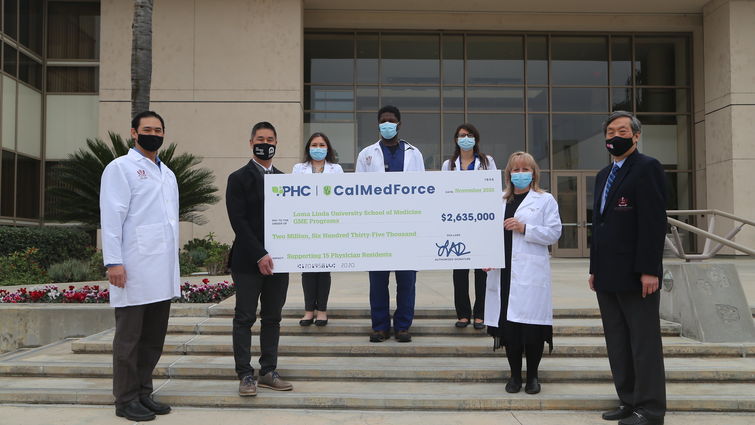
Loma Linda University Health Consortium residency programs will grant nearly $2.7 million in CalMedForce awards to help increase access to healthcare and expand California’s physician workforce.
CalMedForce funding is generated by voter-approved Proposition 56 tobacco tax revenues (2016), and the latest award cycle will support 202 residency positions in 101 graduate medical education (GME) programs at hospitals and clinics throughout California — with an emphasis on those serving medically underserved communities. This round of funding also represented the largest applicant pool: 541 residents and 122 applications requesting over $96 million in funding.
Loma Linda University Health residency awardees represent graduate medical education programs in pediatrics, emergency, family, internal medicine, and obstetrics and gynecology.
Daniel Giang, MD, associate dean for Graduate Medical Education at Loma Linda University School of Medicine says Loma Linda University Health annually invests over $16 million off the bottom line to provide the region with competent and compassionate physicians. “This grant extends our investment by increasing the number of physicians we train to serve our community and the world,” Giang said.
The California Future Health Workforce Commission estimated California will need 4,700 additional primary care clinicians by 2025 and approximately 4,100 more by 2030 to meet demand. Physicians for a Healthy California (PHC), in partnership with the University of California (UC), established the CalMedForce grant program to help address California’s looming physician shortage because medical school graduates must continue training in an accredited, specialty-specific GME residency program to obtain a medical license and care for patients independently.
“CalMedForce continues to demonstrate the high demand and need for GME opportunities,” said Lupe Alonzo-Diaz, MPA, PHC president and CEO. “The lack of sufficient residency spots contributes to California’s physician shortage and limits the number of new doctors entering the workforce,” he said. “With COVID-19 impacting life for the foreseeable future, programs like CalMedForce are even more essential to protect access to care for all Californians.”
